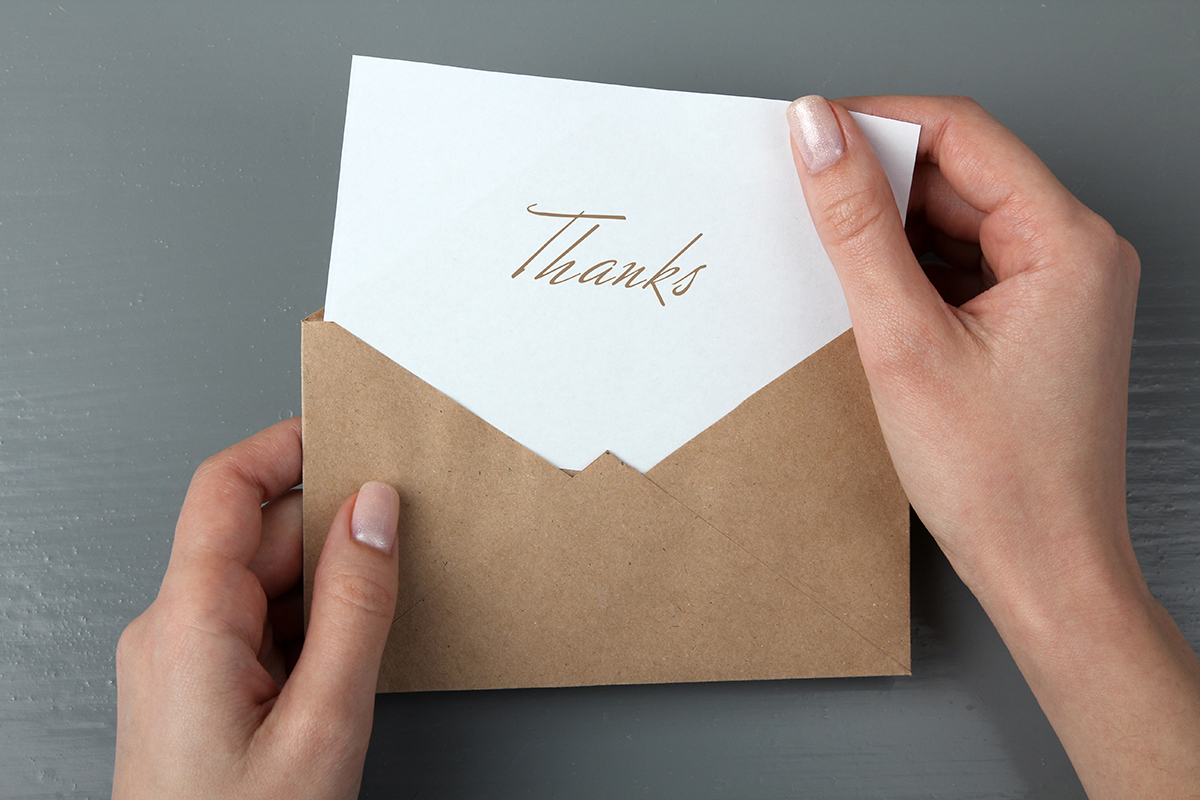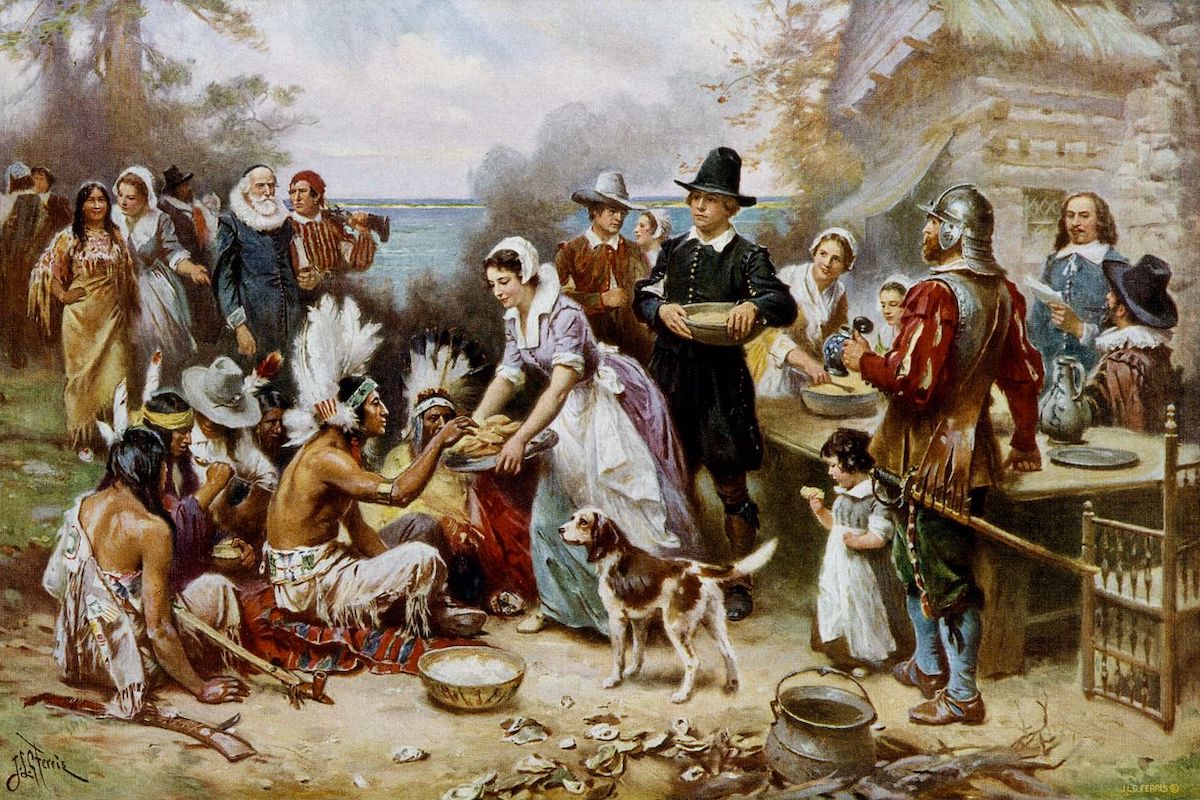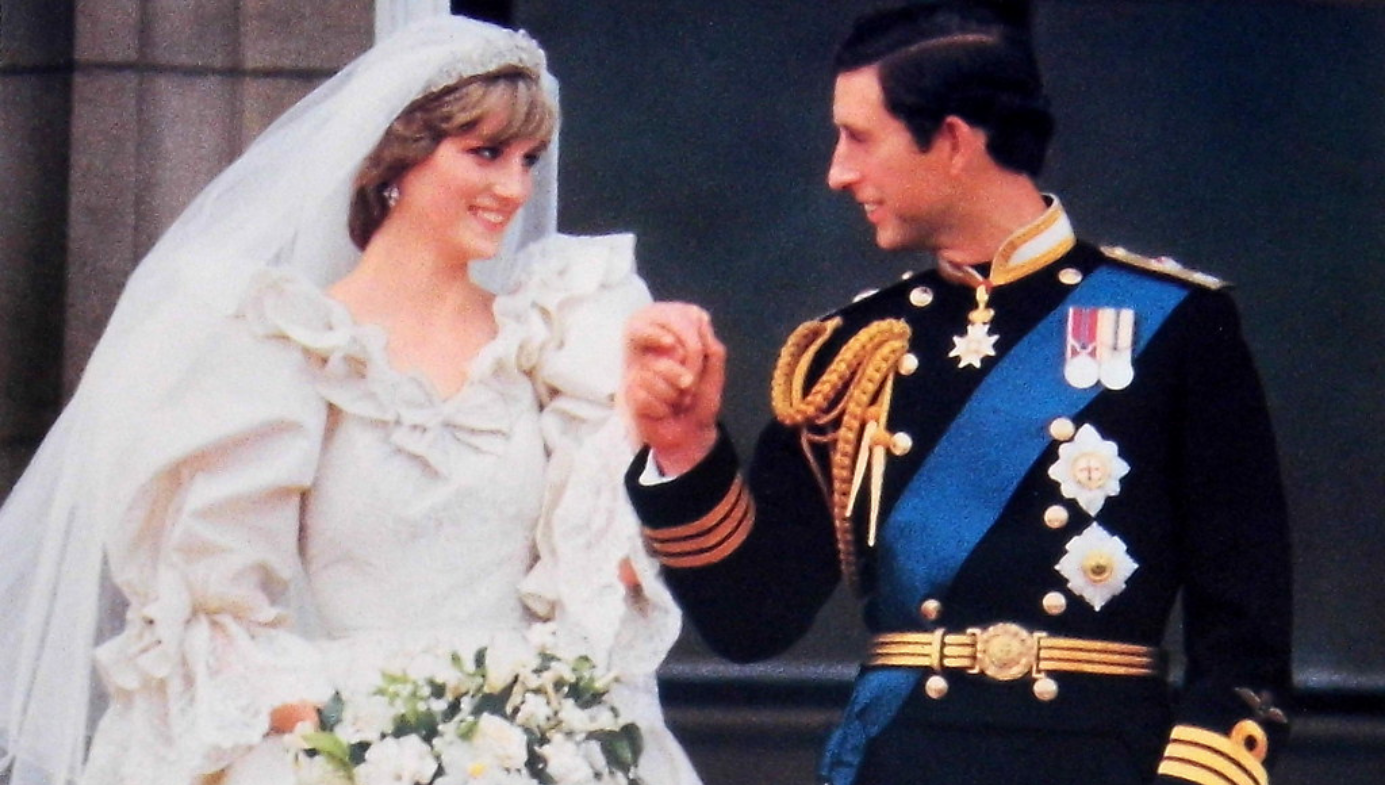Art and Culture
Against Thank You Cards
Grinding out note after note of identical, monotonous pro forma gratitude is not a pleasurable pastime, nor even a merely dull one; it is a good old-fashioned nuisance.

I think it is appropriate, at this late hour in human civilization, to make the case for abolishing the cult of thank you cards. I have not yet heard a good and convincing defense of thank you cards that does not rely on cheap sentimentalism and hidebound traditionalism, two virtues poorly suited to defending anything.
Thank you cards are a mainstay in our culture. After every special event and occasion, after every instance in which a gift is exchanged under some celebratory circumstances, the recipient is expected to handwrite thank you notes within a year, sometimes hundreds of them, each one of those notes generally following an absolutely banal and tedious formula: “Dear [gift giver], thank you so much for [gift]. We’re really looking forward to [using gift in the way it’s supposed to be used]. Thank you so much for coming to [event]. See you soon! Love, [gift recipient].” Lick, stamp, post, repeat for every last platter and wok.
The straightforward truth is that nobody likes writing thank you cards. In fact, I suspect almost everybody positively hates doing it. It is tedious and unfun. Grinding out note after note of identical, monotonous pro forma gratitude is not a pleasurable pastime, nor even a merely dull one; it is a good old-fashioned nuisance. Why else does tradition allow for a year in which to do so? The unpleasantness of the whole affair is built into the very custom.
Nor is it the case that very many people enjoy receiving thank you cards. They are not really meant to be enjoyed. A thank you note functions as a sort of genteel signifier: “I did this, there you go, it’s done, you can’t say I didn’t do it.” How do we know this? Because that’s how we all write thank you cards. When we receive a thank you note we know the spirit in which it was written and sent, because most of us do it in the same way: We work our way down the list, checking off each family member, grumbling and checking again to see how many more we’ve got left to complete. When you receive a thank you note, you know that it was produced with this same weary sense of duty.
Contrast that with the marks and letters of true gratitude you’ve received in your life. They are by necessity rarer, but they are self-evidently genuine and thus infinitely more precious and treasurable than the “Thanks for the kitchen shears” note you got last fall. Real gratitude is not something we give people a year to express, because people don’t want a year to express it; they want to pour it onto the page immediately to communicate how deeply and honestly they’ve been touched. A real thank you letter radiates sincerity. “We are going to love using the new towels you got us!” does not.

I am not the only one to have noticed this. Several months ago, the writer Laura Turner shared a novel gift her friends had given her at her baby shower: “The gift of no thank you notes.” Turner was freed from having to write endless thank yous for the gifts she received at her shower. This is a particularly wonderful thing to give new parents, who self-evidently have a great many more important things to do than write a note thanking you for a soap dispenser.
But the cult of the thank you card remains strong, to the point that there are more than a few people who are honestly offended at the idea of not receiving one. According to one commentator on a wedding website: “It is inexcusable to not write a thank you note. I’m to the point that if I don’t get a thank you note, there won’t be future gifts.” Writing of people who don’t send thank-you cards, another said: “I would drop these ‘friends’.” Another, grousing over her husband’s family’s unwillingness to write thank you notes, wrote: “In every other social circle … everyone is diligent with thank you cards.”

‘Diligent,’ mind you. In no other context would gratitude be taken as evidence of conscientiousness, as if it were comparable to mowing the lawn or clipping the dog’s nails.
It is a strange thing to feel entitled to a thank you note. Do you really care that much? If so, why? I have given many gifts over the years and it never occurred to me to expect anything at all in return. My friendships and family relationships have never hinged on it either way. I have never been bothered by the lack of a thank you card and I am baffled by those who are.
We should drop this silly convention. There is little point to it, and even less moral merit. We can, and should, express real thanks when the moment calls for it; it is entirely worthwhile to say thank you when it is heartfelt and emphatic. Let’s learn to tell the difference, and stop expecting each other to mistake obligation for gratitude.






